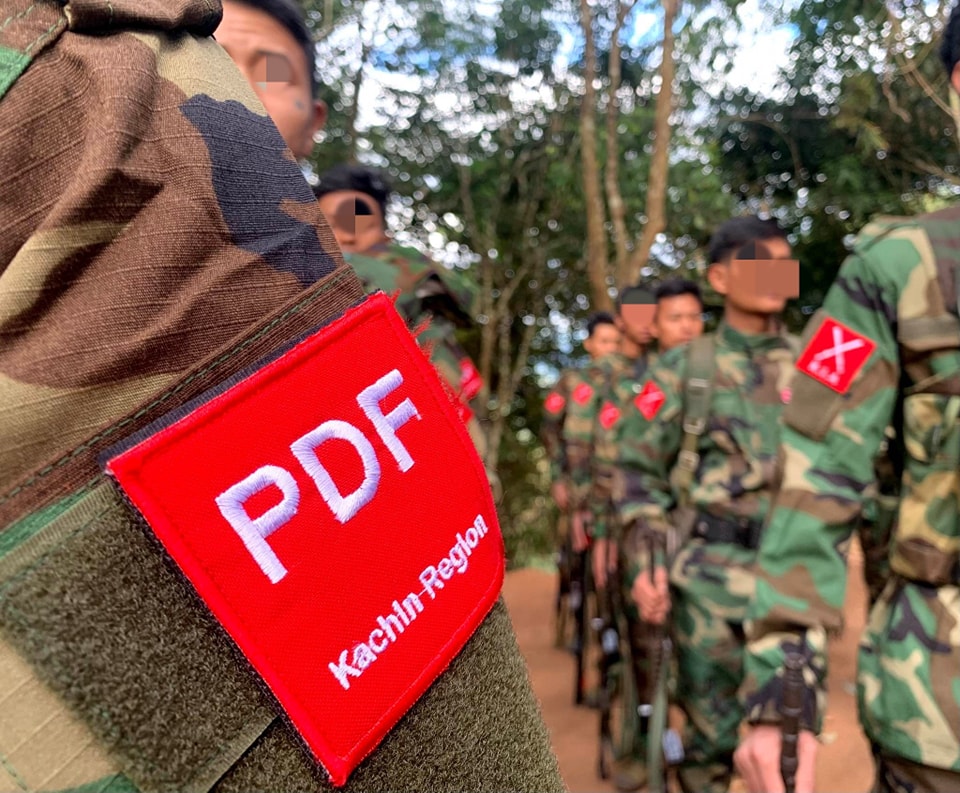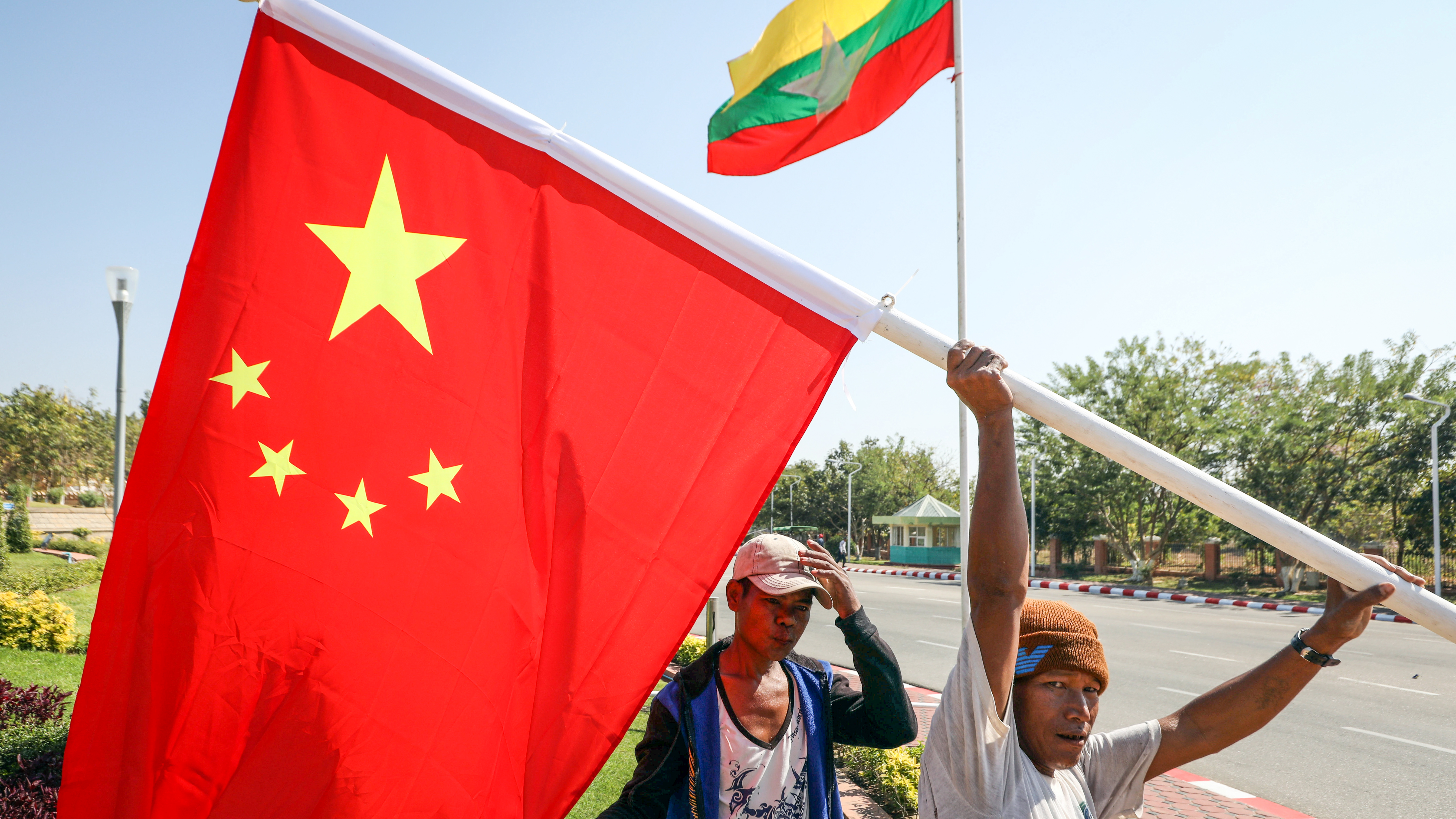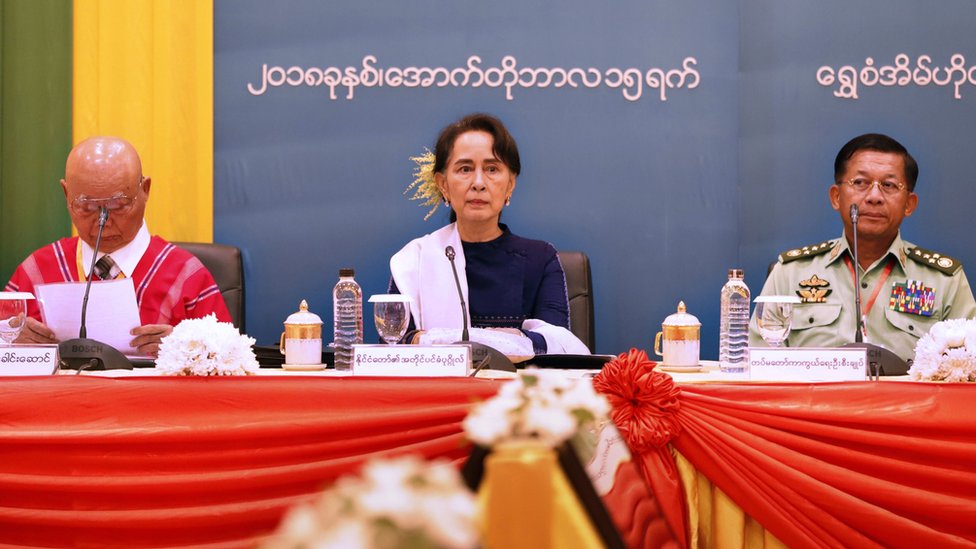CNI Article
15 May 2024
Myanmar, a land of immense natural wealth, has fallen prey to the insatiable appetite of its formidable neighbor, China. With the country mired in internal conflicts and governed by a military regime, China has seized this opportune moment to cement its economic dominance, extracting Myanmar's precious resources with scant regard for the nation's sovereignty or the well-being of its people.[1] This brazen exploitation has rendered Myanmar increasingly subservient to China's whims, threatening to reduce the once-proud nation to a mere vassal state.
At the heart of this exploitation lies China's relentless pursuit of Myanmar's jade, hydropower, and other natural riches.[2] The sole objective is to harvest these resources for China's own benefit, perpetuating an imbalanced and parasitic relationship. The divide between Myanmar's ethnic groups and the Bamar majority has been deftly exploited by Chinese companies, who have effectively turned northern Myanmar into a virtual extension of China's territory.
Chinese companies including Wanbao Mining copper Limited and Yang Tse Copper Limited are trying to protect the Letpadaung project site by bribing the local armed ethnic groups (PDFs), local pressure group in Letpadaung in SagaingRegion amid the conflict between the Military Government and ethnic armed groups.[3] Chinese companies gave 50 crores of MMK each to the local armed groups (PDFs) operating in the area for protecting the Letpadaung project site and its machinery in the areas. Chinese companies also bribe some top brass Officers of North West Command to protect the project site. The Chinese entrepreneurs are focused to invest in mining particularly in Yinmabin, Salingyi and Kani townships in the South Sagaing Region.

China's rapacity extends far beyond copper and jade. The nation is preparing to conduct surveys to assess the presence and potential mining of rare earth materials on the Angumaw Island and in the Rathedaung Township of Rakhine State. Experts from the Kyaukphyu Special Economic Zone (KPSEZ) projects, many of whom arrived in Myanmar with the permission of the State Administration Council (SAC), could be deployed for this purpose, further entrenching China's grip on Myanmar's natural resources.[4]
The exploitation of Myanmar's natural resources is accompanied by a severely skewed trade imbalance that has persisted for years, inexorably tilting the balance of power in China's favor. Since 2018, the trade deficit has consistently favored China, reaching staggering levels that highlight Myanmar's utter dependence on its powerful neighbor. In the fiscal year 2023-24 alone, the trade deficit stood at a whopping USD 1,696.455 million, with Myanmar exporting primarily basic materials such as natural gas, rubber, and agricultural products, while importing finished goods like cotton fabrics, fertilizers, industrial goods, vehicles, and chemicals from China.[5]
Alarmingly, these official figures do not account for the illicit and unregulated export of Myanmar's most precious natural wealth to China, including gold, jade, and rare earth minerals. Myanmar possesses 9% of the world's rare earth mineral reserves, yet this invaluable resource is being smuggled across the border, further enriching China while depriving Myanmar of the economic benefits it desperately needs to uplift its struggling economy and improve the lives of its citizens.

In a feeble attempt to address the trade imbalance, Myanmar signed a "Memorandum of Understanding on the Establishment of the Working Group for the Promotion of Smooth Trade" with China in 2020, which was subsequently renewed in 2024. However, Myanmar's requests for a meeting of this working group, sent via an official letter to the Chinese Embassy on May 11, 2023, have fallen on deaf ears, underscoring China's indifference to Myanmar's concerns and its unwavering pursuit of self-interest.
To gain access to Chinese markets, Myanmar has resorted to participating in trade expos, seminars, and fairs organized by China, such as the China-ASEAN Expo, the Lashio-Lancang Border Trade Fair, the China-South Asia Expo, and the China Kunming Export-Import Expo. However, these efforts have done little to rectify the fundamental imbalance in trade relations, as China maintains a firm grip on the terms of engagement, dictating the flow of goods and capital to serve its own interests.
China's influence over Myanmar's economy has become so profound that all major actors, including the SAC, ethnic armed organizations (EAOs), and the National League for Democracy (NLD), find themselves beholden to China's wishes. Myanmar, once a proud nation endowed with natural bounties, now finds itself helpless, unable to counter China's predatory trade practices and the relentless plundering of its resources. This subjugation has far-reaching consequences, as it erodes Myanmar's ability to chart its own economic course and undermines the sovereignty that should be the birthright of every nation.

As China's stranglehold on Myanmar's economy tightens, the nation's future hangs in the balance. Unless decisive action is taken to curb China's exploitative practices and establish a more equitable trade relationship, Myanmar risks becoming a mere appendage of its powerful neighbor, its natural wealth perpetually drained to fuel China's insatiable ambitions. The time has come for Myanmar to reclaim its sovereignty and assert its right to benefit from its own resources, lest it be relegated to a permanent state of subjugation and deprivation.
The international community must take heed of this alarming situation and lend its voice to Myanmar's plight. Sanctions and diplomatic pressure must be brought to bear on China, compelling it to respect Myanmar's territorial integrity and engage in fair trade practices that foster mutual benefit and sustainable development. Only through concerted efforts can Myanmar be liberated from the shackles of exploitation and allowed to chart a path towards true economic independence and prosperity.
In the annals of history, nations that have succumbed to the insidious forces of imperialism and resource plundering have often found themselves mired in cycles of poverty and subjugation. Myanmar stands at a crossroads, faced with the choice of either surrendering its natural wealth to the rapacious appetite of its neighbor or mustering the courage to reclaim its rightful place as a sovereign nation. The fate of Myanmar's people and their future generations hangs in the balance, and the time to act is now, before the last vestiges of independence are eroded by China's relentless pursuit of dominance.
#Myanmar #China #PDF #EAO #CNIArticle #CNImyanmar
[1] https://www.usip.org/publications/2023/12/chinas-influence-increases-amid-myanmars-instability
[2] https://www.aljazeera.com/news/2021/4/22/myanmar-militarys-lucrative-jade-industry
[3] https://www.rfa.org/english/news/myanmar/chinese-workers-return-copper-mines-myanmar-05132024160209.html
[4] https://www.rfa.org/english/news/myanmar/chinese-workers-return-copper-mines-myanmar-05132024160209.html
[5] https://www.ispmyanmar.com/wp-content/uploads/2023/08/Data-matters-49-eng.pdf




